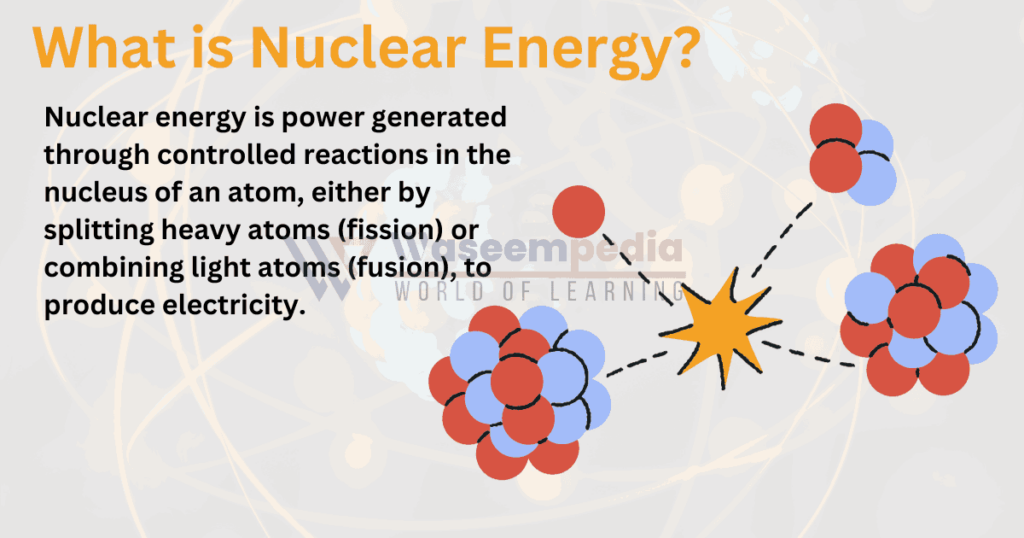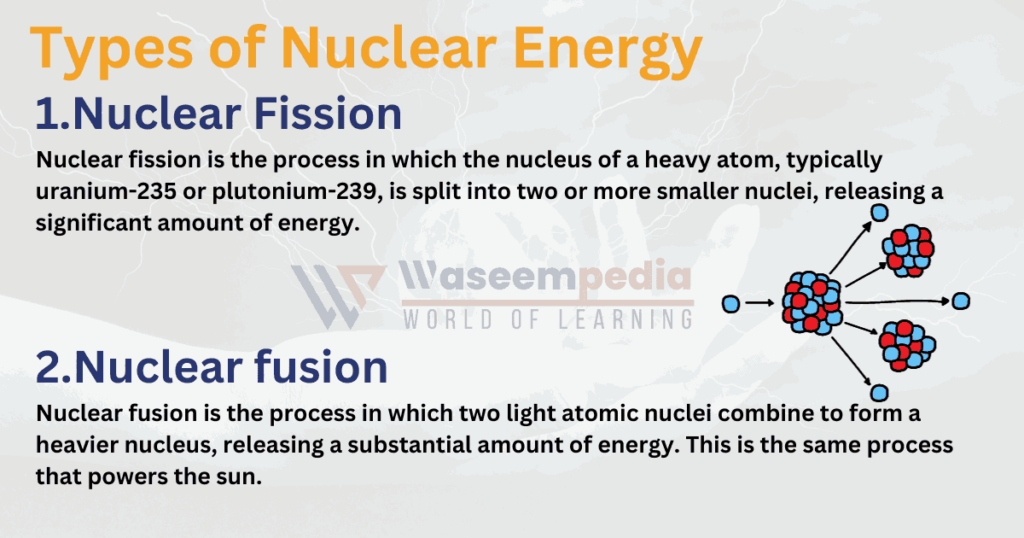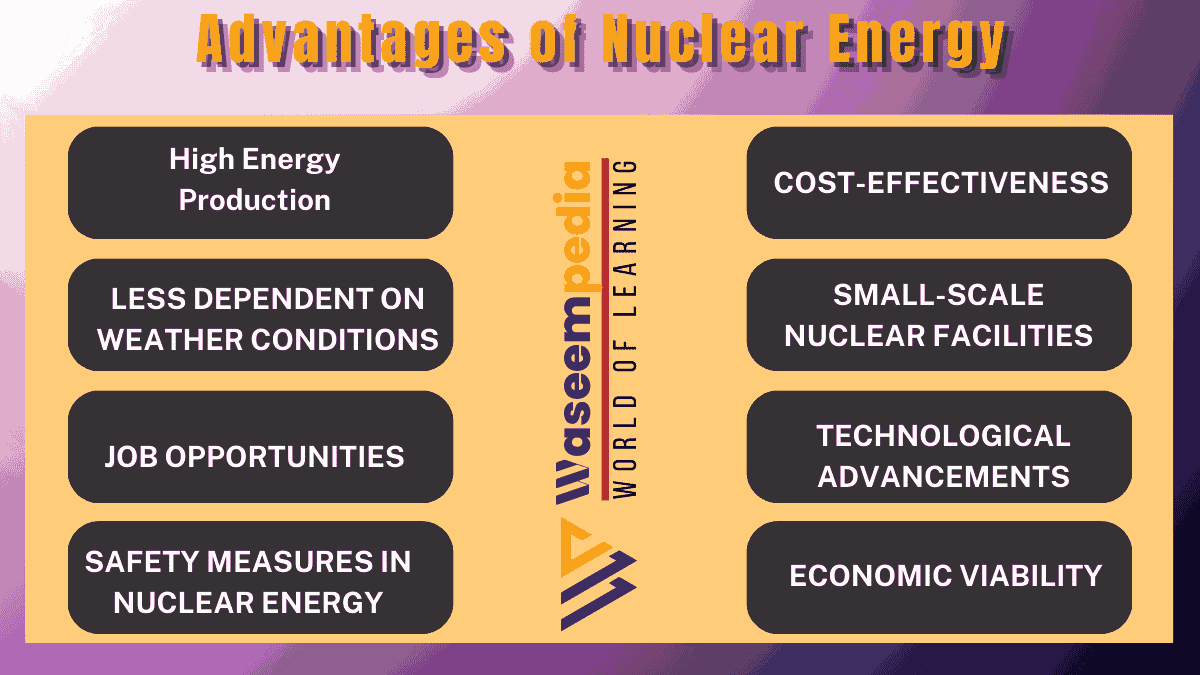In the realm of energy production, nuclear energy emerges as a powerhouse, offering a various of benefits for a sustainable and efficient future. This article explores the top 10 advantages of nuclear energy, highlighting its positive impacts on the environment, economy, and technological landscape.
The various advantages of nuclear energy span environmental, economic, and technological domains. As the world navigates energy challenges, nuclear energy emerges as a reliable and efficient solution with potential future advancements.
What is Nuclear Energy?
Nuclear energy, harnessed from atomic nuclei, is a potent source of power through controlled nuclear reactions. Its significance in meeting the global energy demand is noteworthy.

An Overview of Nuclear Energy’s Importance
As the need for energy rises, the role of nuclear energy becomes increasingly crucial. This article delves into the clean, reliable, and cost-effective aspects that make nuclear energy a compelling subject.
Types of Nuclear Energy
Nuclear energy is primarily classified into two main types: Nuclear Fission and Nuclear fusion

Nuclear Fission
Nuclear fission is the process in which the nucleus of a heavy atom, typically uranium-235 or plutonium-239, is split into two or more smaller nuclei, releasing a significant amount of energy.
Fission is the dominant process in nuclear power plants. The controlled chain reaction of fission reactions produces heat, which is then used to generate steam, turning turbines and producing electricity.
Nuclear fusion
Nuclear fusion is the process in which two light atomic nuclei combine to form a heavier nucleus, releasing a substantial amount of energy. This is the same process that powers the sun.
While fusion has immense potential as a clean and virtually limitless energy source, achieving controlled fusion reactions on Earth remains a significant scientific and engineering challenge. Research and development are ongoing to harness fusion for practical energy production.
These two types of nuclear energy represent different processes of releasing energy from atomic nuclei. Fission is the process currently used in nuclear power plants, while fusion holds promise for the future as a cleaner and more abundant energy source, although it is not yet commercially viable on a large scale.
Top 10 Advantages of Nuclear Energy
There are many Advantages of Nuclear Energy but 10 Advantages of Nuclear Energy are given below:
1. Environmentally Friendly
Minimal Greenhouse Gas Emissions
One of the foremost advantages of nuclear energy is its minimal environmental impact. Unlike traditional fossil fuels, nuclear power generation produces low greenhouse gas emissions, aiding in the fight against climate change.
Reduced Air Pollution
Another standout feature is the reduction of air pollution. With no combustion processes, nuclear energy contributes to cleaner air in communities surrounding nuclear power plants.
2. High Energy Production
Efficient Power Generation
other one is the most primary benifit of nuclear energy is efficient power generation. Nuclear power plants exhibit high energy efficiency, converting a small amount of nuclear fuel into a substantial electricity yield. This efficiency ensures a reliable power supply for communities and industries.
Consistent Power Supply
In contrast to some renewable sources dependent on weather conditions, nuclear energy provides a consistent power supply. This reliability is vital for meeting baseline energy demands.
3. Cost-Effectiveness
Longevity of Nuclear Plants
Nuclear power plants boast an extended operational lifespan, spreading the initial investment over many years of reliable energy production. This longevity contributes to their cost-effectiveness.
Economic Viability
one of the most important Advantages of Nuclear Energyis Economic Viability. Investing in nuclear energy infrastructure creates economic opportunities. The nuclear industry stimulates economic growth and job creation, ranging from construction and maintenance to research and development.
4. Reliability
Steady Energy Production
Nuclear power plants operate continuously, providing a stable and consistent energy output. This stability is crucial for a reliable power supply for homes, businesses, and industries.
Less Dependent on Weather Conditions
Unlike solar and wind energy, nuclear power is not weather-dependent, ensuring a constant energy supply and minimizing weather-related disruptions to the power grid.
5. Compact Footprint
Small-Scale Nuclear Facilities
Nuclear power plants have a relatively small land footprint compared to renewable energy sources like solar and wind farms. This compact nature allows for efficient land use.
Efficient Land Use
The compact size of nuclear facilities makes them suitable for locations with limited space, supporting a decentralized energy infrastructure.
6. Job Opportunities
Employment in Nuclear Industry
The nuclear industry offers diverse job opportunities, from plant operations to research and development. This diversity contributes to workforce development and economic prosperity.
Skill Development and Training
The specialized nature of nuclear jobs requires skill development and training programs, enhancing the workforce’s capabilities and contributing to advancements in science and technology.
7. Technological Advancements
Innovations in Nuclear Sector
Ongoing research and development in nuclear energy lead to technological advancements. Innovations such as advanced reactor designs and fuel technologies enhance the safety, efficiency, and sustainability of nuclear power.
Future Technological Developments
The dynamic nature of nuclear science holds promise for future technological developments, from small modular reactors to improved waste management strategies.
8. Energy Independence
Reducing Fossil Fuel Dependency
Nuclear energy plays a vital role in reducing dependence on finite fossil fuel resources. This diversification enhances energy security and resilience against global energy market fluctuations.
National Security Aspects
Reducing reliance on external sources for energy contributes to national security. Countries with robust nuclear capabilities enhance their energy independence, mitigating geopolitical risks associated with energy supply.
9. Challenges and Future Prospects
Safety Measures in Nuclear Energy
While nuclear energy offers substantial advantages, addressing safety concerns is paramount. Efforts to enhance safety protocols and implement rigorous regulatory measures are crucial for responsible nuclear power use.
Exploring Advanced Technologies
The future of nuclear energy lies in exploring advanced technologies. Ongoing research fuels optimism for continued advancements in reactor designs and fuel technologies.
10. Waste Management
Advances in nuclear waste disposal technologies address concerns about environmental impact. Ongoing efforts focus on developing efficient methods for managing and minimizing the long-term effects of nuclear waste.
Conclusion
In conclusion, the myriad advantages of nuclear energy span environmental, economic, and technological domains. As the world navigates energy challenges, nuclear energy emerges as a reliable and efficient solution with potential future advancements.

